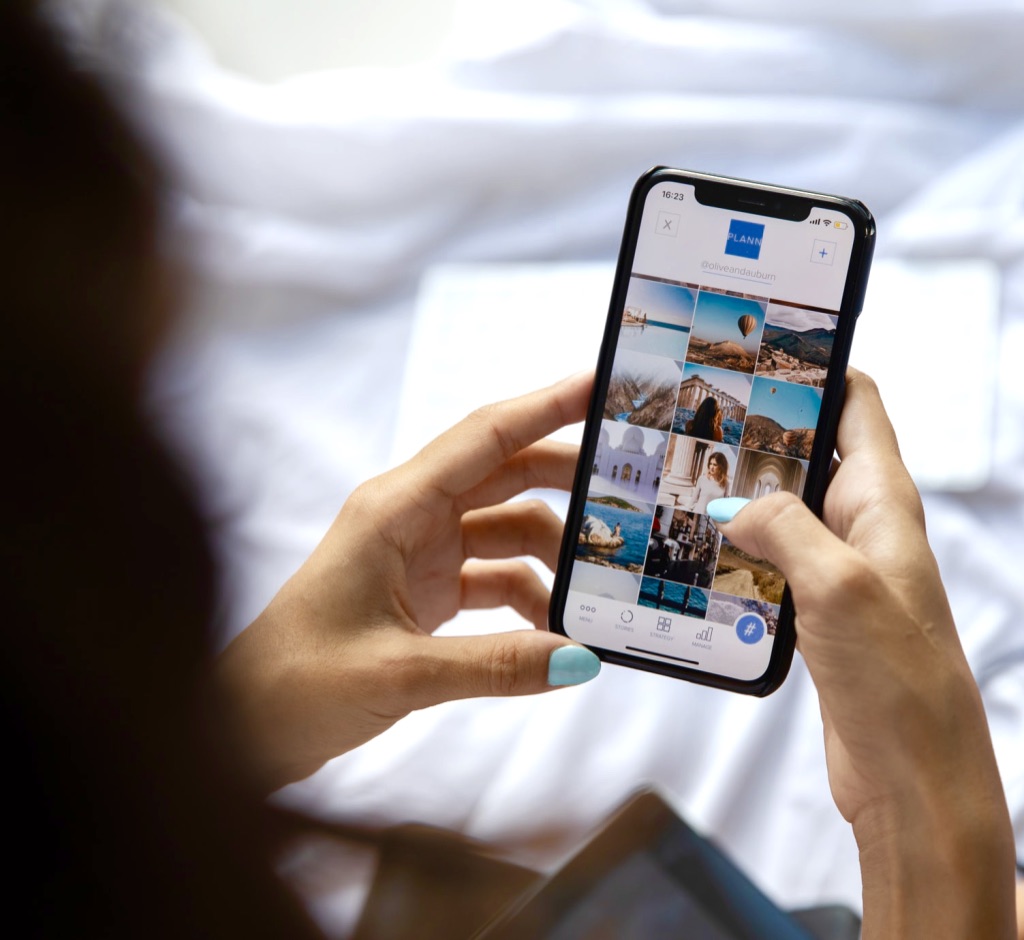
When to Buy Your Child a Cell Phone

Today, parents have many worries about the age-appropriateness of modern technology including when to give their children a cell phone. Cell phones can be a helpful, useful tool for many families with young children, especially for parents who work outside of the home. However, there are pros and cons to children having access to cell phones. We’ve researched some of the conflicting information and realized it’s a personal choice for each parent depending on the child’s maturity and the family’s need. It’s important to think through these decisions with the most information possible. That’s why we’re sharing what we’ve uncovered to help you in determining whether your child is ready for a cell phone.
When my oldest daughter was 12 and all of her friends had cell phones, I spoke to a pediatric therapist about this topic. I had been procrastinating to broach this subject with my daughter for years and kept telling her, “You’re too young for such a big responsibility. You don’t need a cell phone.” However, I was shocked at the therapist’s reply. Michelle Farrar, of Fuquay Family Counseling Practice, proclaimed, “It’s social suicide not to have a cell phone for girls her age.” She continued, “Kids in middle school do everything by apps, texting, and social media, so your child is going to miss out on quite a lot. She’s not going to be invited to places with her friends and eventually, they’ll give up on her.” Wow! I had no idea I was hurting my daughter’s social activity and possibly her self-esteem. I thought I was protecting her, not damaging her.

When researching whether or not children should have a cell phone, I found most of the research states that it is dependent upon the particular child. One of the first questions parents should ask is, “Why do they need a cell phone?” Is it because all of their friends have one? If so, this is not a good enough reason and maybe it’s not the right time for a cell phone. However, if children are involved in extracurricular activities and parents need to track their whereabouts for safety, a cell phone can come in handy. According to Consumer Reports, 6 out of 10 parents of children ages 8 to 12 provide them with a cell phone, with 84 percent citing safety as their main concern and 73 percent using it as a way to track after-school activities.
Another question parents should ponder is, “How responsible or mature is their child?” Children with cell phones need to take care of it. After all, having a cell phone is a privilege. They must be able to keep track of it and not damage it. When taking a cell phone to school, they must follow the school’s rules and use it only when allowed. Taking pictures, videos, and utilizing social media apps must remain appropriate and abide by your family’s rules as well. Parents need to explain their guidelines for cell phone use with their children and acknowledge a clear understanding with consequences for misuse. It’s important for parents to take time to discuss topics like cyber bullying and inappropriate internet searches with their kids before just handing over a cell phone. As parents, only we know the maturity level of our children and can gauge their ability to be responsible with such a privilege.

Also, parents need to ask if their children understand the cost of having another cell phone on the family plan. All plans are different. While some offer unlimited messaging and calls, others may charge for extras if anyone goes over the limit. Sometimes, downloads come with an extra cost, too. Parents need to explain the many different costs associated with cell phones and be sure their children can be trusted to stay within those limits.
Finally, parents can ask themselves, “What type of cell phone plan is best for my child?” There are numerous websites that have done the research for parents already. In fact, Consumer Reports outlines three major cell phone plan carriers, AT&T, Verizon, and T-Mobile, on their website www.ConsumerReports.com. Ultimately, the decision depends upon the family’s needs: budget, data usage, contract length, network coverage, etc. Why not take advantage of all the research available to you at your fingertips, first? In the end, it’s up to you what matters most when considering what type of plan works best.
After reviewing all of the information and guidelines for gauging whether or not my child was ready for a cell phone, I eventually conceded. My 12-year-old daughter was mature for her age, very responsible in her studies and at home, a trustworthy young lady who abided by our family rules, and understood the costs associated with cell phones. She offered to pay for half of the cost with her savings and promised to take care of it. So, we went to the store together and purchased an iPhone 8. We downloaded a GPS tracker, utilized the parental controls for setting limits on web searches and text messaging, and put our trust in her. As of today, she has managed to maintain our trust by being responsible and dependable with this privilege. And, I’m happy to say that her social life is still very active!
Does your child have a cell phone? What were some of the reasons you did or did not buy a cell phone for your child? Connect with us on Instagram @MapsCookingKids or on Twitter @MapsCookingKids. Until next time, Agape, be kind, and happy parenting.





